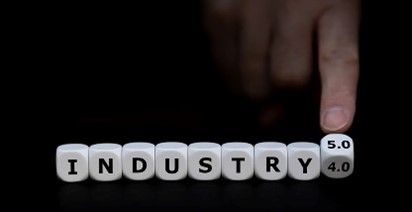Description project
 The goal of this project is twofold: (1) to specify what and how production workers should develop their digital knowledge, to ensure that they remain employable for future jobs in three Smart Industry contexts: AI in Smart Maintenance, Smart Robotics, and Smart VR/AR, and (2) to develop an innovative framework for scalable intraorganizational ecosystems that stimulate and activate them to update their skills continuously. To achieve this goal, we synthesise the in-depth knowledge of AI in Smart Maintenance, Smart Robotics and Smart VR/AR within seven field labs, their affiliated 30 organisations, and four research domains: human resource development (HRD), workplace innovation (WI), knowledge management (KM), and human resource management (HRM). The key question for Smart Industry survival and success will be whether production workers can keep up with and contribute to ongoing technological developments often driven by rapid evolving digitalisation. This requires an operational workforce aware of how new technological developments and digitalisation evolve, how these technologies are applied, and employees keen to understand, adopt and adapt technology using their current sophisticated knowledge and understanding. These requirements present a challenge for production workers who are not self-evidently exposed to new techniques and are often not consulted on such matters. To ensure that production workers can be engaged and involved, the questions that need to be answered are:
The goal of this project is twofold: (1) to specify what and how production workers should develop their digital knowledge, to ensure that they remain employable for future jobs in three Smart Industry contexts: AI in Smart Maintenance, Smart Robotics, and Smart VR/AR, and (2) to develop an innovative framework for scalable intraorganizational ecosystems that stimulate and activate them to update their skills continuously. To achieve this goal, we synthesise the in-depth knowledge of AI in Smart Maintenance, Smart Robotics and Smart VR/AR within seven field labs, their affiliated 30 organisations, and four research domains: human resource development (HRD), workplace innovation (WI), knowledge management (KM), and human resource management (HRM). The key question for Smart Industry survival and success will be whether production workers can keep up with and contribute to ongoing technological developments often driven by rapid evolving digitalisation. This requires an operational workforce aware of how new technological developments and digitalisation evolve, how these technologies are applied, and employees keen to understand, adopt and adapt technology using their current sophisticated knowledge and understanding. These requirements present a challenge for production workers who are not self-evidently exposed to new techniques and are often not consulted on such matters. To ensure that production workers can be engaged and involved, the questions that need to be answered are:
- What skills should production workers learn and job characteristics that need to be present for those employees to remain employable in future jobs?
- How should production workers be guided and trained to effectively use and apply Smart Industry technologies that enable a more flexible and efficient production system for smart industry companies?
- How can production workers be activated and stimulated to develop their skills continuously? What does the learning process look like over time, and which interventions are effective in specific contexts to facilitate this continuous process of learning?
- What are the potential ways of organising intra-organisational collaboration between companies and knowledge institutes to facilitate and scale-up production workers' distribution and development of skills?
Expected outcomes
- Design guidelines for a corporate curriculum framework that provides an organizational ecology that activates and stimulates production workers to develop their skills and innovate products and processes continuously
- Practitioner publication
involved researchers
Dr. Marcella Hoogeboom - Contact person
Prof. Dr. Maaike Endedijk
Dr. Mireille Hubers
Dr. Stephan Corporaal
Dr. Paul Preenen
Dr. Luuk Collou
Dr. Dennis Trotta
Dr. Vincent Wiegel
Dr. Jannes Slomp
Drs. Thomas Stege
Duration of the project
Oktober 2022 – December 2023
Funding & partners
NWA
publications and presentations related to this project
Not applicable
